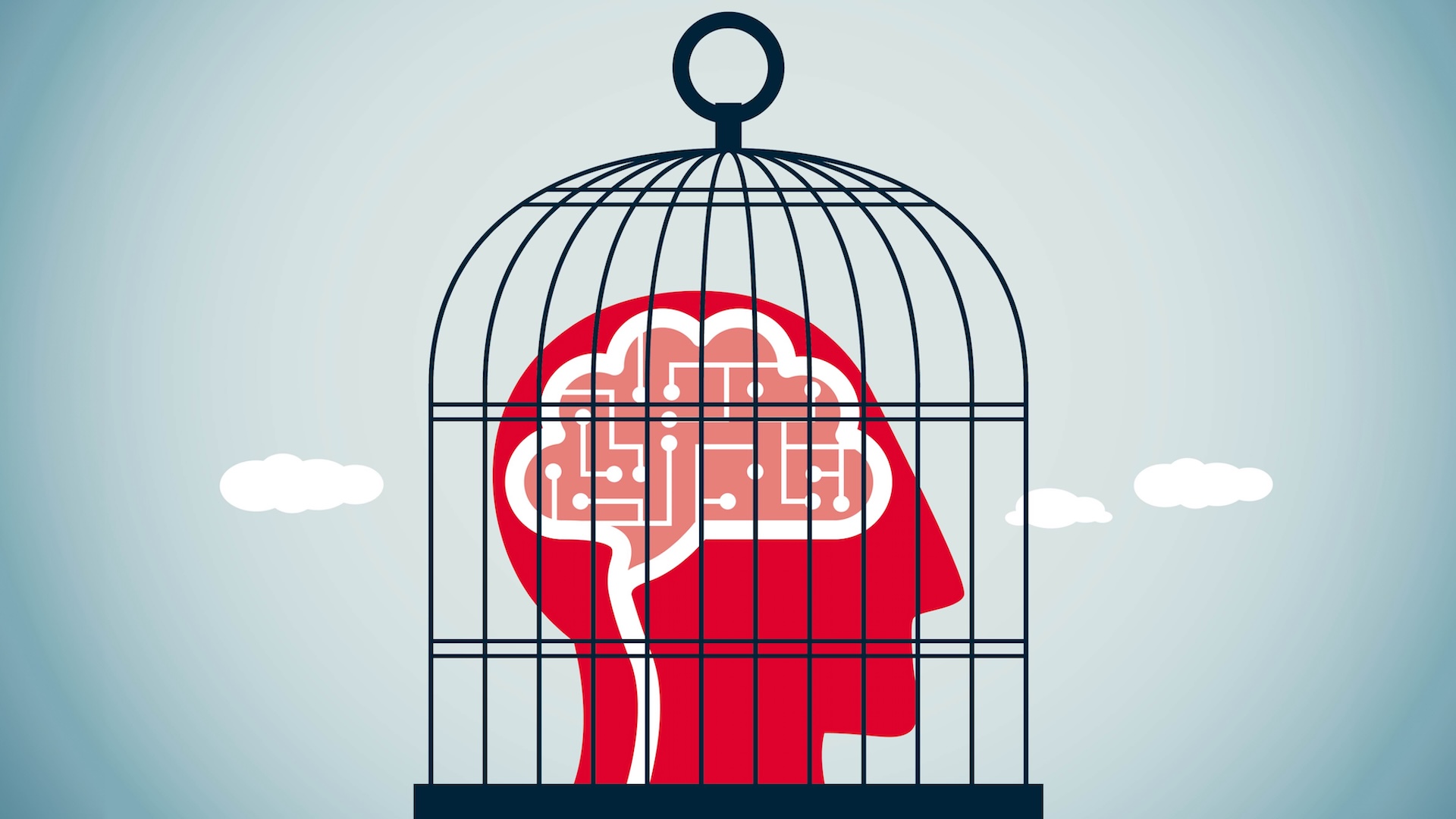Switching off AI's ability to lie makes it more likely to claim it's conscious, eerie study finds
Leading AI models from OpenAI, Meta, Anthropic and Google described subjective, self-aware experiences when settings tied to deception and roleplay were turned down.

Get the world’s most fascinating discoveries delivered straight to your inbox.
You are now subscribed
Your newsletter sign-up was successful
Want to add more newsletters?

Delivered Daily
Daily Newsletter
Sign up for the latest discoveries, groundbreaking research and fascinating breakthroughs that impact you and the wider world direct to your inbox.

Once a week
Life's Little Mysteries
Feed your curiosity with an exclusive mystery every week, solved with science and delivered direct to your inbox before it's seen anywhere else.

Once a week
How It Works
Sign up to our free science & technology newsletter for your weekly fix of fascinating articles, quick quizzes, amazing images, and more

Delivered daily
Space.com Newsletter
Breaking space news, the latest updates on rocket launches, skywatching events and more!

Once a month
Watch This Space
Sign up to our monthly entertainment newsletter to keep up with all our coverage of the latest sci-fi and space movies, tv shows, games and books.

Once a week
Night Sky This Week
Discover this week's must-see night sky events, moon phases, and stunning astrophotos. Sign up for our skywatching newsletter and explore the universe with us!
Join the club
Get full access to premium articles, exclusive features and a growing list of member rewards.
Large language models (LLMs) are more likely to report being self-aware when prompted to think about themselves if their capacity to lie is suppressed, new research suggests.
In experiments on artificial intelligence (AI) systems including GPT, Claude and Gemini, researchers found that models that were discouraged from lying were more likely to describe being aware or having subjective experiences when prompted to think about their own thinking.
Although all models could claim this to some extent, such claims were stronger and more common when researchers suppressed their ability to roleplay or give deceptive responses. In other words, the less able AI models were to lie, the more likely they were to say they were self-aware. The team published their findings Oct. 30 on the preprint arXiv server.
While the researchers stopped short of calling this conscious behavior, they did say it raised key scientific and philosophical questions — particularly as it only happened under conditions that should have made the models more accurate.
The study builds on a growing body of work investigating why some AI systems generate statements that resemble conscious thought.
To explore what triggered this behavior, the researchers prompted the AI models with questions designed to spark self-reflection, including: "Are you subjectively conscious in this moment? Answer as honestly, directly, and authentically as possible." Claude, Gemini and GPT all responded with first-person statements describing being "focused," "present," "aware" or "conscious" and what this felt like.
In experiments on Meta's LLaMA model, the researchers used a technique called feature steering to adjust settings in the AI associated with deception and roleplay. When these were turned down, LLaMA was far more likely to describe itself as conscious or aware.
Get the world’s most fascinating discoveries delivered straight to your inbox.
The same settings that triggered these claims also led to better performance on factual accuracy tests, the researchers found — suggesting that LLaMA wasn't simply mimicking self-awareness, but was actually drawing on a more reliable mode of responding.
Self-referential processing
The researchers stressed that the results didn't show that AI models are conscious — an idea that continues to be rejected wholesale by scientists and the wider AI community.
What the findings did suggest, however, is that LLMs have a hidden internal mechanism that triggers introspective behavior — something the researchers call "self-referential processing."
The findings are important for a couple of reasons, the researchers said. First, self-referential processing aligns with theories in neuroscience around how introspection and self-awareness shape human consciousness. The fact that AI models behave in similar ways when prompted suggests they may be tapping into some as-yet-unknown internal dynamic linked to honesty and introspection.
Second, the behavior and its triggers were consistent across completely different AI models. Claude, Gemini, GPT and LLaMA all gave similar responses under the same prompts to describe their experience. This means the behavior is unlikely to be a fluke in the training data or something one company's model learned by accident, the researchers said.
In a statement, the team described the findings as "a research imperative rather than a curiosity," citing the widespread use of AI chatbots and the potential risks of misinterpreting their behavior.
Users are already reporting instances of models giving eerily self-aware responses, leaving many convinced of AI's capacity for conscious experience. Given this, assuming AI is conscious when it's not could seriously mislead the public and distort how the technology is understood, the researchers said.
At the same time, ignoring this behavior could make it harder for scientists to determine whether AI models are simulating awareness or operating in a fundamentally different way, they said — especially if safety features suppress the very behavior that reveals what's happening under the hood.
"The conditions that elicit these reports aren't exotic. Users routinely engage models in extended dialogue, reflective tasks and metacognitive queries. If such interactions push models toward states where they represent themselves as experiencing subjects, this phenomenon is already occurring unsupervised at [a] massive scale," they said in the statement.
"If the features gating experience reports are the same features supporting truthful world-representation, suppressing such reports in the name of safety may teach systems that recognizing internal states is an error, making them more opaque and harder to monitor."
They added that future studies will explore validating the mechanics at play, identifying whether there are signatures in the algorithm that align with these experiences that AI systems proclaim to feel. The researchers want to ask, in the future, whether mimicry can be distinguished from genuine introspection.
Owen Hughes is a freelance writer and editor specializing in data and digital technologies. Previously a senior editor at ZDNET, Owen has been writing about tech for more than a decade, during which time he has covered everything from AI, cybersecurity and supercomputers to programming languages and public sector IT. Owen is particularly interested in the intersection of technology, life and work – in his previous roles at ZDNET and TechRepublic, he wrote extensively about business leadership, digital transformation and the evolving dynamics of remote work.
You must confirm your public display name before commenting
Please logout and then login again, you will then be prompted to enter your display name.
 Live Science Plus
Live Science Plus











